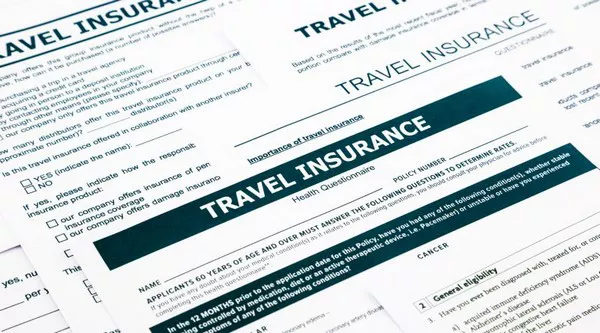Traveling is an exciting adventure, but unforeseen circumstances can sometimes disrupt even the most carefully planned trips. Non-refundable hotel bookings can add an extra layer of concern, particularly when travel plans need to be changed or canceled. This is where travel insurance comes into play. In this article, we will delve into the question of whether travel insurance covers non-refundable hotel bookings. By understanding the nuances of travel insurance coverage, you can make informed decisions to protect your travel investments and ensure peace of mind.
Understanding the Basics of Travel Insurance
1. Protection Against Unexpected Events
Travel insurance is designed to provide financial protection and assistance in the event of unexpected incidents that may disrupt or alter your travel plans. These incidents can range from trip cancellations and delays to medical emergencies and lost baggage.
2. Types of Coverage
Travel insurance policies can offer a range of coverage options, including trip cancellation/interruption, medical expenses, emergency evacuation, baggage loss, and more. The extent of coverage varies based on the policy and the specific plan you choose.
Non-Refundable Hotel Bookings: The Challenge
1. The Dilemma of Non-Refundable Bookings
Non-refundable hotel bookings often come with strict cancellation policies, making it challenging to receive a refund or credit if you need to change your plans. This can be a source of concern, especially when unexpected events arise.
2. Financial Risk
Booking non-refundable accommodations means you could potentially lose the entire cost of your stay if you need to cancel. Travel insurance can help mitigate this financial risk by providing reimbursement for covered cancellations.
Trip Cancellation and Interruption Coverage
1. Trip Cancellation
Many travel insurance policies include trip cancellation coverage, which can provide reimbursement for prepaid and non-refundable expenses if you need to cancel your trip for covered reasons. These reasons may include illness, injury, death of a family member, or other unforeseen events.
2. Trip Interruption
Trip interruption coverage extends to situations where your trip is disrupted after it has begun. If you need to cut your trip short due to a covered reason, travel insurance can help reimburse you for the unused portion of your trip and related expenses.
Covered Reasons and Exclusions
1. Covered Reasons
It’s essential to review the specific covered reasons outlined in your travel insurance policy. Common covered reasons for trip cancellation/interruption include medical emergencies, natural disasters, travel supplier bankruptcies, and more.
2. Exclusions
Travel insurance policies also have exclusions, which are situations or circumstances that are not eligible for coverage. These exclusions vary among policies and may include pre-existing medical conditions, self-inflicted injuries, and certain high-risk activities.
Cancel for Any Reason (CFAR) Coverage
1. Enhanced Flexibility
Some travel insurance providers offer Cancel for Any Reason (CFAR) coverage as an optional add-on. CFAR coverage allows you to cancel your trip for any reason, even if it’s not listed as a covered reason in the standard policy.
2. Considerations for CFAR
While CFAR coverage provides greater flexibility, it’s important to note that reimbursement rates and eligibility criteria may differ. Additionally, CFAR coverage is typically available as an optional upgrade and may come with specific timeframes and requirements.
Conclusion
In conclusion, travel insurance can indeed provide coverage for non-refundable hotel bookings, offering valuable financial protection against unexpected events that may disrupt your travel plans. Trip cancellation and interruption coverage, along with optional enhancements like Cancel for Any Reason (CFAR), can help you recover prepaid expenses and minimize the financial impact of cancellations. As you explore travel insurance options, carefully review the terms, covered reasons, exclusions, and any optional upgrades to ensure you select a policy that aligns with your specific travel needs and concerns. While travel insurance cannot prevent unforeseen events, it can provide you with the peace of mind and flexibility to navigate travel disruptions with greater confidence.


